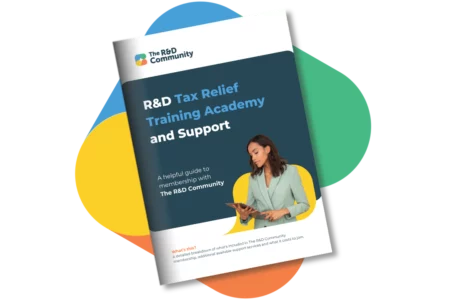The preferred option seems to be that anyone delivering an R&D tax relief service will need to be registered with and supervised by one of the taxation professional bodies (like the CIOT or ICAEW).
One of the implications of this is you’ll be expected to undertake a significant amount of annual Continued Professional Development (CPD).
For example, the ICAEW stipulates that if you’re working in practice, you should aim for 20-40 hours of CPD per year (depending on your role). That’s quite a large chunk of time if your role is mostly advising on R&D tax relief.
Why regulation will bring in higher standards for R&D advisors
HMRC isn’t just trying to encourage people to take more training. It also wants professional bodies to have a hand in raising standards in R&D. Professional bodies already regulate their members by:
- Setting minimum standards of competence
- Assessing whether members meet these standards
- Requiring members to take remedial training when necessary
- Setting ethical standards
- Monitoring the activities of members and enforcing the required standards
If R&D professionals are to be included, this will require professional bodies to think more closely about how to evaluate the competence of those giving advice on R&D tax relief. When they identify people who don’t meet the proper standard, they’ll also have to think about the training required to get them to where they need to be.
The need for advisors to demonstrate competence in R&D
We’ve already heard from our members that clients are seeking out providers with higher standards and more experience, even though previously they cared more about price over quality. And if regulation is introduced, it will become essential to demonstrate your expertise and competence.
There are two ways you’ll be able to do this. The first will be to point to your CPD record. It’ll show that you have taken training to stay up to date as the schemes and their requirements evolve.
The second is to gain a qualification in R&D tax relief. This shows that you have undergone structured learning and assessment and been tested against a defined standard by an independent organisation. Attaining a qualification can be a powerful tool to wield, not just with HMRC and the professional bodies, but in attracting new clients.
So, if R&D CPD and qualifications are so important, where can you find them?
Finding learning & development resources for R&D tax relief
If you’ve ever searched online for R&D tax relief training, you’ll know your options are limited.
Very few organisations produce R&D training that goes beyond the basic principles. Many will promise to teach you “everything you need to know” in just a few hours. But, in such a short session, they barely scratch the surface of what is a vast and complex topic.
Currently, this is a barrier to good practice – and the problem’s just going to get worse. If HMRC follows through with its plans to implement more stringent CPD requirements, finding useful training could be major concern for R&D specialist providers.
More options will surely spring up over time, but the good news is you don’t have to wait and see!
We’ve had our eye on this situation for a while. HMRC has been concerned with raising standards in R&D tax relief for a few years now, and this is just the latest development on that front.
For nearly 3 years, we’ve been steadily producing a catalogue of training resources for R&D advisors. You’ll find training courses, webinars, knowledge bank videos, downloadable guides and templates, and even a helpline and advanced workshops to tackle your specific questions and concerns.
Our most popular courses cover:
- Making the most of HMRC’s Additional Information Form
- Explaining Eligibility – How to discuss R&D with clients
- Screening and Selling – how to qualify leads for R&D Tax Relief
Explore the course catalogue to find and purchase CPD options to suit you, whether that’s a free course, a paid course, or an ongoing membership.





